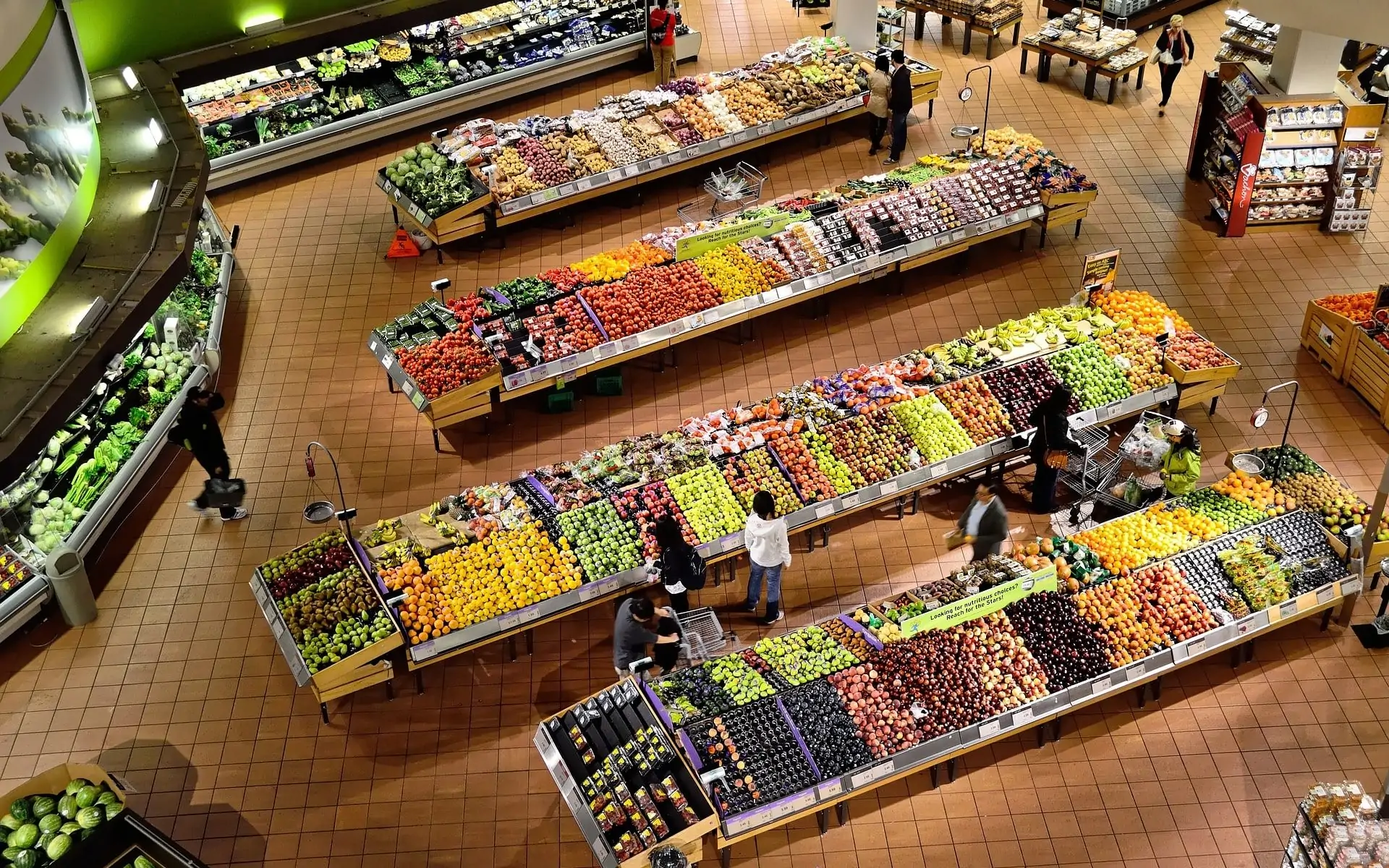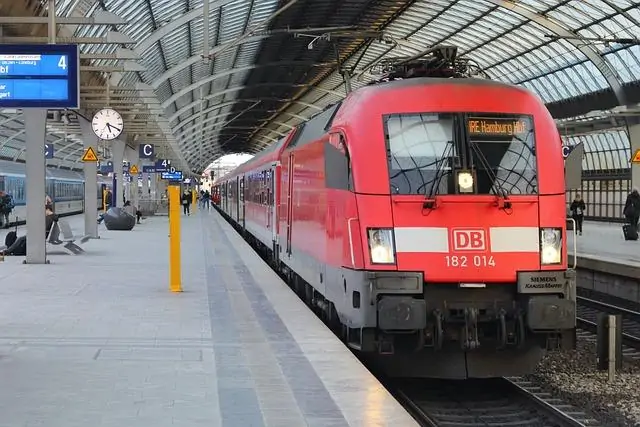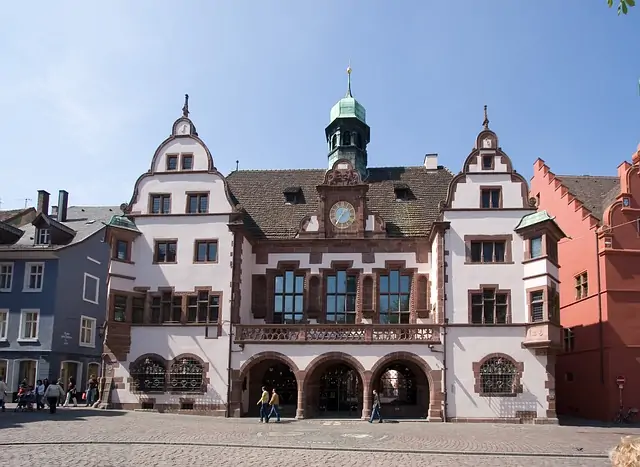This post contains affiliate links. It means that if you click on the links and make a purchase, we will receive a small commission at no additional cost to you. This allows our blog to continue providing you with free information. We only include links and products that we truly believe in. You can read the full disclosure here.
Going to supermarkets in Germany was a totally new experience for me. The way how it works in Germany is completely different than in Hong Kong or the US. In this post, you will find a list of “strange things” that you will notice when visiting supermarkets in Germany. I have also included some tips here about how you can save money when doing grocery shopping in Germany.
Moving to Germany or new in Germany? Check out our Resources Page for all the help you need!
What to expect when visiting supermarkets in Germany

You need a deposit to use the shopping cart
If you want to use the shopping cart, you will need to have some coin with you. Normally, you will find the shipping carts outside the supermarket. A deposit of 50 cents/ 1 EUR coin is needed in order to use the shopping cart. You are supposed to put the shopping cart back to the same place after your shopping. And then you will get your deposit back.
In case you do not have any coin, it is possible to ask the staff in some of the supermarkets. They may provide you with a plastic or wooden coin, which you can use as a deposit for the shopping cart. I keep one of these plastic/ wooden coins in my wallet, so that I can always use a shopping cart without worrying about having no 50 cents/ 1 EUR coin with me.
Bring your own bags
Germany is a very environmentally friendly country. Using plastic bags is not encouraged. You are supposed to bring your own bags for your grocery. If you ask for a bag at the cashier, you will be charged for some cents per bag. Alternatively, you can buy a reusable grocery bag at the cashier so that you can use it as well for your future grocery shopping.
The cashier will not bag your groceries
Talking about bags, one surprising thing for me is that cashiers in German supermarkets do not bag your groceries. In Hong Kong, or in the US, they will do the work for you, but not in Germany. Basically, once it is your turn at the cashier, you will have to get ready: have your cash/card ready; collect every item immediately once it has been scanned by the cashier; tidy up your bags and leave as fast as you can once you have paid. Some supermarkets don’t even have a big space after the cashier. Only one or two items can be there and the cashier is super-fast. It sounds almost like a race. Yes, it can be stressful, especially for someone who is new to this. You gotta be fast if you don’t want to block all the customers behind you!
Shops are closed on Sunday
Be aware that all shops are closed on Sunday and public holidays in Germany. I did not know this at the beginning and couldn’t buy food for my cooking on Sunday! In Germany, people believe that Sunday is a rest day. So, people should not work and shops should not be open.
There are some exceptions to this. For example, certain shops like petrol station, restaurant, gym are allowed to open. Besides, in some cities, shops in the airport or main train stations are open on Sunday.
Don’t forget that if there is a long weekend (e.g. public holiday on Monday), you will need to buy everything on Saturday. Normally you will see a long line on Saturday because everybody wants to buy their food for the next two days.
Limited opening hours
Besides closing on Sunday, supermarkets in Germany can have a short opening time comparing with other countries. Depending on the state, shops are required to be closed at a certain time. For example, unlike in Hong Kong where shops can open until almost midnight, all supermarkets have to be closed by 8 pm in Bavaria. In some other states, it can be at 10 pm. Check the opening hours in your area to make sure you can shop on time.
You may need to weight the vegetables yourself
In some supermarkets, the vegetables are charged per kilogram. You will see a weighing scale in the vegetable area. When you pick the vegetable, you will need to weight it on the scale. A label will be issued from the scale, stating the weight of the vegetable and the price. Stick this label on the vegetable so that the cashier can scan it and know how much it costs.
For some other supermarkets, the process is simpler. The cashiers have a scale at their desks. They can weight and charge you accordingly without you putting a label on the vegetable.
Deposit for bottles
As mentioned, Germany is a very environmentally friendly country. They try to do recycling as much as possible. There is a deposit system for many glass or plastic bottles. For example, if you buy a bottle of beer, you will need to pay for both the beer and also some cents of deposit (Pfand). After you finish the beer, you can bring the empty bottle back to any supermarkets. Most supermarkets have an automatic machine that can scan your bottle and you can then get back your deposit. So, don’t just throw your empty bottles into the trash!
Online grocery shopping
If you are too lazy to go to the supermarkets, you can also order online. Some supermarkets offer online shopping platforms, for example:
REWE well-known supermarket chain in Germany with their own brand “ja!” products
EDEKA another well-known supermarket chain in Germany. EDEKA has small, medium stores and also very large stores selling more than groceries (clothing, appliances, etc.).
Discount supermarkets like LIDL, NETTO, ALDI and PENNY: the presentation may not look the best in these supermarkets. But you can find low price products there.
How to save money when doing groceries?

Organize your shopping list
When I first came to Germany, I went to do grocery shopping without planning ahead. Basically, I decided what I wanted to cook when I was in the supermarket. And what happened? I bought way too much food! I tended to overbuy when I was starving. Besides, I just made my purchase decision very spontaneously. When I saw the eggs, then I thought: “Oh, it would be nice to have some eggs at home!” In the end, I was not able to finish what I had bought. The food was expired and I had to throw them away.
Nowadays, I plan ahead. Before going to the supermarket, I plan already what I want to cook, write down my shopping list, and buy only these items in the supermarkets. I realized that I have way less waste. It is much more efficient and I save money on the unnecessary purchase.
In the beginning, I used a pen and paper to write down my shopping list. Now, I am using an app on my mobile which is WAY BETTER. I just need my phone at the supermarket. Look at my shopping list and click the items that I have put in the shopping cart. The items will be marked as done in the app. It is very easy to see which items I still need to buy and helps me to not forget to buy something. This is the notes keeping app that I use, which is also free of charge.
Use payback card
Payback card is a point collecting system. Every time when you go grocery shopping, you can present the card at the cashier to collect points based on the amount you spend. When you accumulate enough points, you can use those points to either get a free product or use them like cash for the next purchase. They have also different promotion actions where you can use a coupon to collect more points than usual.
Many shops accept payback card. The one I use most is DM and REWE. When I first came to Germany, I heard about the payback card because the cashiers always asked me if I had a payback card. I was not interested in the beginning because I was not sure how it worked and if it was worth it. After a few years in Germany, I started using it because I shopped daily in REWE.
I regret not using the payback card earlier. Since REWE and DM are nearby my flat, I am going to shop there anyway, no matter if I have a payback card or not. And I realized that after one year of use, I have accumulated around 80 EUR worth of points. It means that I can use these points to go a few times shopping for free. For more details on how to use a payback card in REWE, you can check this website. You can also apply for the payback card online free of charge.
Visit discount supermarkets or farmers’ markets
As mentioned before, you can find low price products at the discount supermarkets. These supermarkets are usually more crowded. The presentation of products and customer services may not be as nice. However, you can usually find anything you need there, at low prices.
Pay attention to any special deals in the supermarkets. You can also buy things in bulk to get a lower per unit price. Especially if you are living in a shared flat, you can cook together with your housemates to share the costs.
Besides, check your area to see if there are any farmers’ markets. You can usually find fresh products from the region at a low cost there.
Buy food that is going to expire soon
Normally, supermarkets will have a big discount for food that is going to expire soon. You can find meat and vegetable which are significantly lower than their normal price if the expiry dates are coming soon. If you are planning to buy and cook on the same day, you can pick those products and save quite some money.
Besides, you may find in some supermarkets (like EDEKA) a shopping cart nearby the cashier with a whole lot of different discounted products inside. These are discounted products that have an upcoming expiry date. You can search if you find anything you want to buy there to get a good deal.

What do you think about grocery shopping in Germany? Leave a comment and tell me your experience or any tips you use to save money!
[facebook-page-plugin href=”foreigneringermany/” cover=”true” facepile=”false” cta=”false” small=”true” adapt=”true” link=”true” linktext=”Follow me on my facebook page!” ]Moving to Germany or new in Germany? Check out our Resources Page for all the help you need!
If you found this article helpful, consider supporting this website by buying me a coffee. Every small donation helps to keep this blog alive. You can also ask me any questions here. Buy me a coffee








I m searching grocery. app in English in Germany
I personally use grocery app but they are in German. I think it is not too complicated though. You just need some simple German words. Unfortunately, I do not know any grocery app in English. At least I have not personally used one.